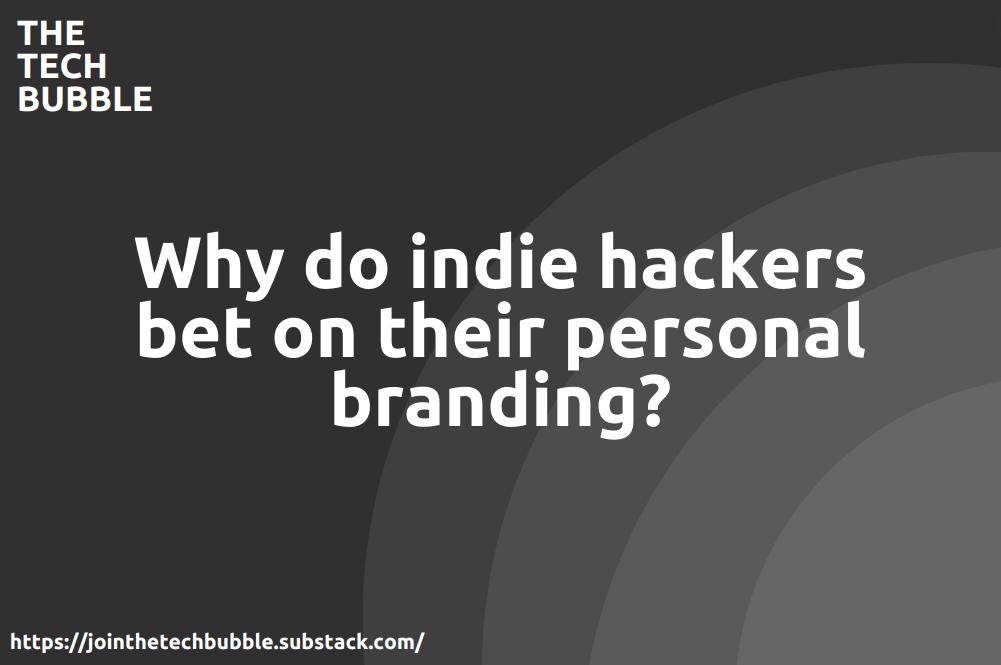Why do indie hackers bet on their personal branding?
In the indie hacking space, it's common to hear more about the indie hacker than the business they are running. Why?

Recently I came to a realization: in the indie hacking space, there are people who are pushing a lot to build up their personal brand, communicating about their builder journey, sharing their numbers openly and putting themselves as the face of their business.
And often, their social media accounts aren’t promoting anything related to their product directly. Things like new features, use cases, etc. They just share things about the indie hacking process.
Here’s some examples:





You can see the pattern… they talk a lot about the insides of their business, being open and transparent about it. But for most, they are not talking about the business itself, meaning their personal accounts are not a distribution channel for their indie business… or is it?
The actual reason they are building their personal brand
For most of them, the actual reason is different: they are targeting other indie hackers as their customer base, and they are building their distribution channel to sell them other products.
Some of them have their own podcast that is aimed to indie hackers, some of them have newsletters or the ones who really aim to cash in big on the indie hacking trend have courses where they teach how to become a successful indie hacker.
And they are building their personal brands in order to funnel people into these side businesses, which in some cases might be more profitable than their main ones.
In other cases, their main business is actually targeted at indie hackers, with things such as code boilerplates, marketing tools, content generation, social media analytics. Sure, there could be other customer types to target, but indie hackers is a category that is easily accessible through #buildinpublic, #indiehackers and sharing numbers along the way (MRR is probably the most popular shared metric that draws in the most indie hackers as customers).
Conclusion
Although it’s not something negative to post about the indie hacking process to create an audience of indie hackers, it’s something that became more and more obvious lately.
Indie hackers who are building for indie hackers, who are building for indie hackers, and so on. It’s definitely not sustainable.
I think this happens because a lot of indie hackers want to build something to scratch their own itches, and them identifying with the indie hacking space, they end up building something for it.
But the market is much more than that, and I think these indie hackers limit themselves to a market that some even started to compare it as a “Ponzi scheme of boilerplates and wrappers”.
Thanks for reading The Tech Bubble! Subscribe for free to receive new posts twice per week about indie hacking, startups and technology, through a CTO’s lens.
